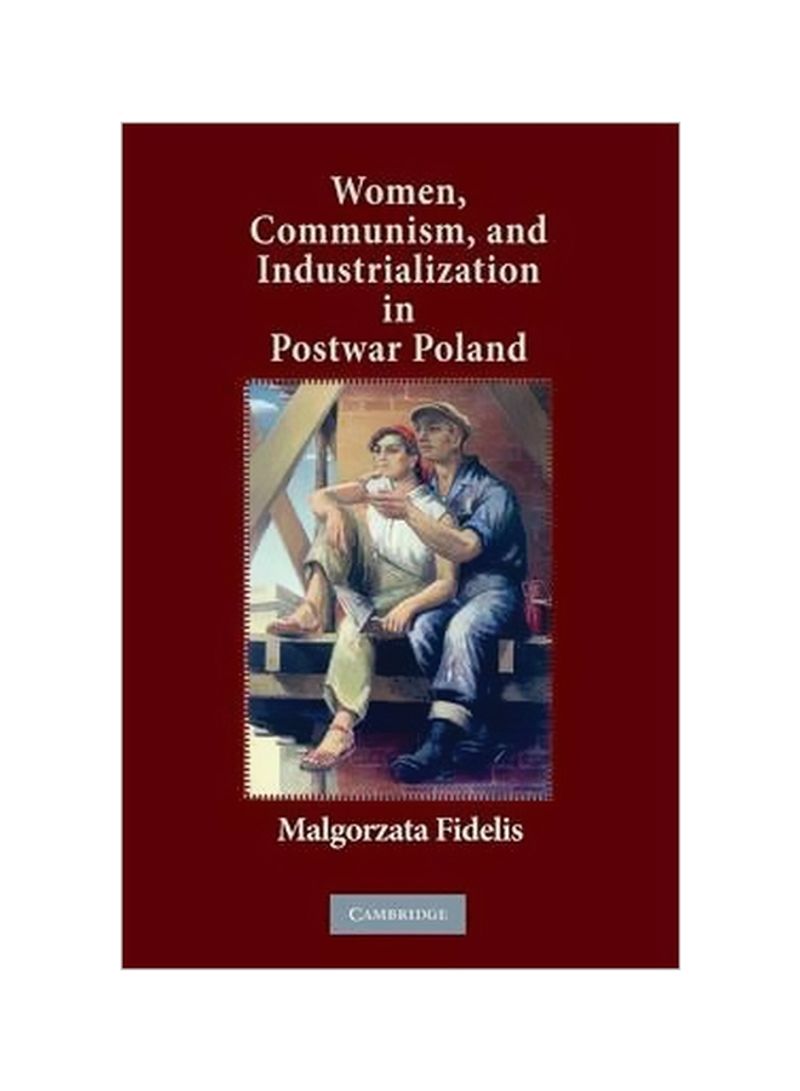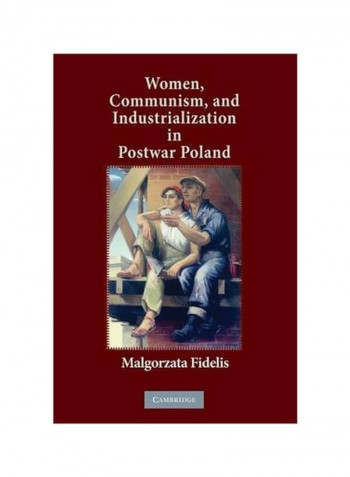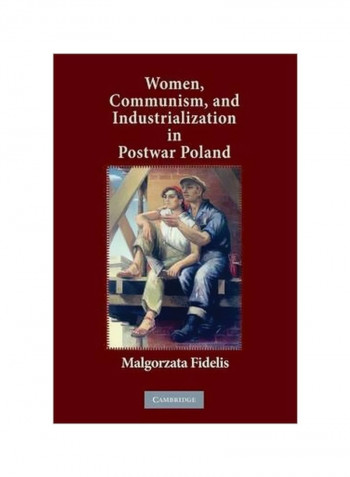Women, Communism, And Industrialization In Postwar Poland Paperback
Recommend
Sort by
Rating
Date
Specifications
Author 1
Malgorzata Fidelis
Book Description
Conventional historical accounts of European communism tend to delegate women to the margins. By focusing on female industrial workers in postwar Poland, Malgorzata Fidelis demonstrates that women, in fact, were central to the making of communist society both as subjects of policies and ideology, and as powerful historical agents in their own right. This book uncovers a dynamic story of political contestation between state and society, in which ideas and practices of gender played a surprisingly pivotal role. Through fascinating material ranging from previously untapped party and secret police records to ordinary people's letters to the press and oral interviews, the book offers new insights on the social impact of war, struggles on the shop-floor, the challenges of incorporating village girls into fast-moving industrial society, the societal resistance against women entering male-dominated occupations, and finally the unexpected consequences of liberalization and reform.
ISBN-10
1107617669
ISBN-13
9781107617667
Language
English
Publisher
Cambridge University Press
Publication Date
02-Jan-14
Number of Pages
296
About the Author
Malgorzata Fidelis is currently Assistant Professor of History at the University of Illinois at Chicago. Her articles have appeared in journals including Slavic Review and the Journal of Women's History. She has also contributed to several edited volumes of essays published in the USA, Poland, and Germany.
Editorial Review
Malgorzata Fidelis provides a significant and comprehensive research study that questions conventional historical accounts of women and communism within the European context. ... provides a rich and nuanced account of the ways in which gender was taken up by state and society who shifted its meaning depending on social and politico-economic needs of the time.' Canadian Woman Studies "In this important and extensively researched study, Malgorzata Fidelis challenges several ingrained notions in the existing scholarly literature on women and communism: the alleged natural opposition between a production-oriented regime and family-oriented women, the notion of the `double burden' as a social phenomenon specific to women's experiences under communism, and the application to the entire Soviet bloc of an interpretation of Stalinism as a conservative reaction in regard to women's issues. In bringing politics, labor, and gender into an integrated discussion and analysis of immediate postwar Poland, Fidelis virtually stands alone." -Robert Blobaum, West Virginia University "Polish Stalinism promoted social justice by opening new professions to women. What do we make of this fact? More importantly, what did Polish women make of it? Did they equate Stalinism with justice? In this path-breaking book, Fidelis answers these and many more questions, showing us that gender did not wait until the 21st century to be discovered by historians: it was thick on the ground in Communist Poland, fiercely debated by all those interested in securing or contesting power, a crucial but neglected dimension to understanding the Polish past." -John Connelly, University of California, Berkeley "In this finegrained study of stalinism in Poland, we encounter women at the loom and by the coal hopper, on the road from the village and in the factory barracks, raising children and struggling with abortion, at Party meetings and on strike. Fidelis shows that the postcommunist ambivalence toward women in the public sphere is rooted in and mirrored by tensions in the 195s, when communists and nationalists alike chose to celebrate women as homemakers and to place their bets on the heroic male worker. This is a welcome analysis that is both sophisticated and highly readable." -Padraic Kenney, Indiana University "Malgorzata Fidelis finds the beginnings of a new future for women and work in the desperate years that followed World War II. In her richly documented study, Fidelis portrays the excitement and energy experienced by women entering the workforce under the red banner of communism. Her work writes a new chapter in Polish women's history and provides a more nuanced understanding of gender and industrialization in the building of the Polish People's Republic. Elegantly written and extensively researched, this new work is a major contribution to the field of women and labor in the early years of communism in Poland." -Shana Penn, Graduate Theological Union "Fidelis has used archival findings to unite basic themes of social and feminist history in a study of women's work in Stalinist Poland. Her description of the rise and fall of a new conventionality on the shopfloor and in the home adds a new element to the history of communism." -Timothy Snyder, Yale University "Fidelis's insightful book tells a complex and fascinating story and contributes a great deal to east central European gender history." -Laurie Koloski, Slavic Review "Fidelis has conducted a lucid and clear debate. Her research is meticulous and her arguments are stated with clarity. This is a monograph which will make a major contribution to a number of debates on the subject of Communism, namely on social transformation, relations with the labour force, and, finally, women's role in the great upheavals of the post-war period." -Anita Prazmowska, European History Quarterly



